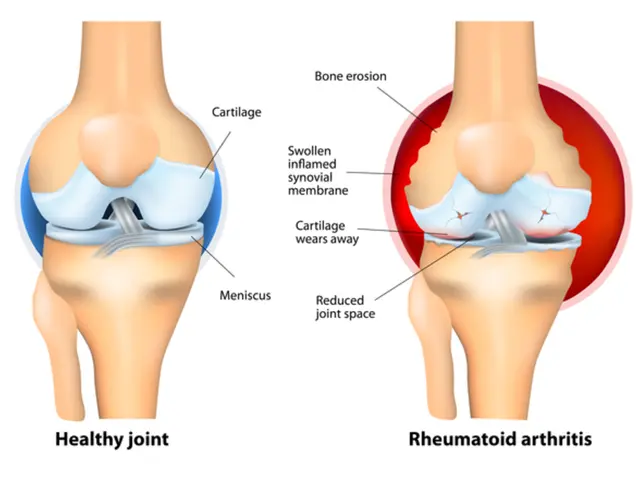Maintaining Cognitive Function: Adhering to Mediterranean Diet and Leading an Active Lifestyle Could Be Preventive Measures
Researchers are investigating whether a combination of the Mediterranean diet and regular walking, referred to as the "MedWalk intervention," may reduce the risk of cognitive decline and various dementias, including Alzheimer's. This novel study, which takes place in South Australia and Victoria, Australia, aims to confirm the benefits of this multi-faceted approach to brain health.
Previously, both the Mediterranean diet and walking have been linked to improved cognitive function. However, this study is the first to assess their combined impact, recognizing the potential synergistic effects of these lifestyle choices. The researchers believe that compelling findings will emerge from the modified study structure, which was necessitated by the COVID-19 pandemic.
The primary focus of the study is to measure the change in visual memory and learning of participants over a 12-month period. Additional areas of interest include mood, quality of life, health costs, cardiovascular health, arterial stiffness, glucose regulation, inflammation, nutrients, and oxidative stress.
Participants are aged 60 to 90 and are assigned to either the MedWalk intervention group or a control group maintaining their customary diet and activity level. The MedWalk intervention incorporates dietary modifications alongside a supervised walking regimen, reinforced by psychosocial behavioral change techniques. Participants receive extensive support for the first 6 months, with ongoing assistance for the following 6 months.
Instruction is provided to help participants understand the benefits of the Mediterranean diet, which includes providing free extra-virgin olive oil and other foods crucial to this diet. After an initial assessment of aerobic fitness, participants take part in group walking sessions for the first 6 months, followed by monthly sessions for the remainder of the study period.
Initial research has suggested that adhering to a Mediterranean diet may lead to fewer dementia cases. Other studies have linked this diet to lower rates of Alzheimer's disease, the most common form of dementia. However, Conner Middelmann, a certified nutritionist specializing in the Mediterranean diet, emphasizes the importance of considering other factors that influence dementia risk, as well.
Regular walking is also associated with reduced cognitive decline. One study found a correlation between the number of steps taken daily and a diminished risk of dementia, with 10,000 steps per day decreasing the risk by 50%. Other research has demonstrated a relationship between walking speed and dementia prevention. Understanding how these lifestyle factors work together could lead to novel strategies for combating cognitive decline and dementia.
The data-collection period for this ongoing study will conclude by the end of 2023, with the ultimate goal of enhancing cognitive health and reducing the risk of dementia through lifestyle modification.
- This study in South Australia and Victoria, Australia, investigates the MedWalk intervention – a combination of the Mediterranean diet and regular walking – to potentially reduce the risk of cognitive decline and various dementias, including Alzheimer's.
- Recognizing the potential synergistic effects of these lifestyle choices, the study is the first to assess the combined impact of the Mediterranean diet and walking on brain health.
- Participants, aged 60 to 90, are assigned to either the MedWalk intervention group or a control group, and the researchers provide extensive support for the first 6 months, with ongoing assistance for the following 6 months.
- Adhering to the Mediterranean diet, which incorporates dietary modifications alongside a supervised walking regimen, could lead to fewer dementia cases, and regular walking is also associated with reduced cognitive decline.
- By the end of 2023, the data-collection period for this ongoing study will conclude, with the ultimate goal of enhancing cognitive health and reducing the risk of dementia through lifestyle modification.






